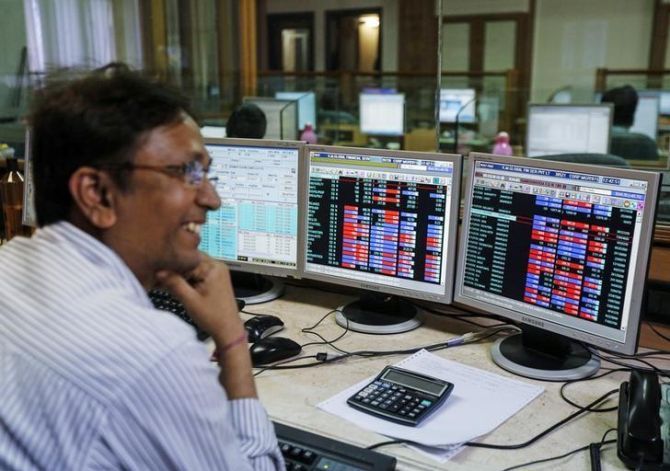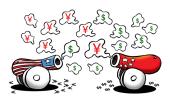Investors should look at actively managed funds, says Devangshu Datta.

Dhirendra Kumar of Value Research made interesting points recently in a column (external link). He looked at the performance of the Nifty versus the universe of actively managed equity mutual funds.
He pointed out that 297 out of 345 actively managed funds (86 per cent) beat the Nifty over the last five years.
As much as 90 per cent of the corpus of actively managed equity beat the Nifty in terms of NAV (net asset value) gains versus Nifty total return (dividend plus capital gain).
In terms of NAV capital gains versus pure index capital gains, 97 per cent of corpus beat Nifty.
That data is incontestable. It shows India is very different from other large markets.
In most markets, just about 10 to 20 per cent of actively managed funds outperform the benchmark index in a given year.
What's more, few funds do it consistently.
Where opinions differ is in looking for underlying reasons and that column led to heated comments on social media and on the Value Research Web site.
Some commentators stated the obvious when they said other indices like the Nifty Next 50 outperform the Nifty.
Obviously, given the data, many subsets of the market including other indices, beat the Nifty.
There are three useful questions one can ask, as follows:
- Why does this outlying behaviour occur?
- Is this a lasting effect?
- How does the investor exploit it?
The column suggested that it is possible the Nifty (and Sensex, since it's just a subset of the Nifty) were not good representatives of the market.
By definition, a benchmark index should give the 'average' market performance.
The column also suggested that, given that this is a long-term effect, it makes sense for investors to look at active options, rather than index funds or ETFs (exchange traded funds).
This is good advice.
Investors should look at actively managed funds since, even chosen at random, active funds outperform the Nifty.
Since this outperformance has lasted for decades, it is very likely to persist for the foreseeable future unless there is some radical change in the economic environment.
Why does this happen?
More than the Nifty being unrepresentative, it is due to market imperfections. '
The Efficient Market Hypothesis says that if information flows equally to all participants, and it's equally easy for all to trade, it is hard to beat the benchmark consistently.
If the market isn't efficient on the other hand, beating the index consistently is possible if somebody has better information.
The market benchmark (the Nifty) may be imperfect -- this can be argued about. But India is definitely not a highly efficient market.
Information doesn't flow equally to all. Nor is it equally easy for all to trade.
India's entrepreneurs work within a policy environment with thousands of complex laws and loopholes. That means information leaks, at different rates to different participants.
Good institutional investors have built an edge in gathering and processing that information.
While the information flow asymmetries last, the outperformance of active funds will also last, regardless of the representative nature of the benchmark or otherwise.
Information flows will not equalise any time soon.
Don't get me wrong -- asymmetric information flow is not only about insider trading in the legal sense, although illegal insider trading does often occur in India.
It is also about knowing that 'X' company manages the policy environment well and that 'Y' minister, or 'Z' Secretary is dynamic and/or corrupt and hence, certain companies operating in a specific sector will do well while that individual is in charge.
Fund-based investors can take the top 10 funds in terms of returns over the last five years.
Flip through the portfolios and pick any three, or five funds, with combined portfolios that offer wide diversification.
Invest systematically. The returns should beat the Nifty.
Photograph: Shailesh Andrade/Reuters












 © 2025
© 2025